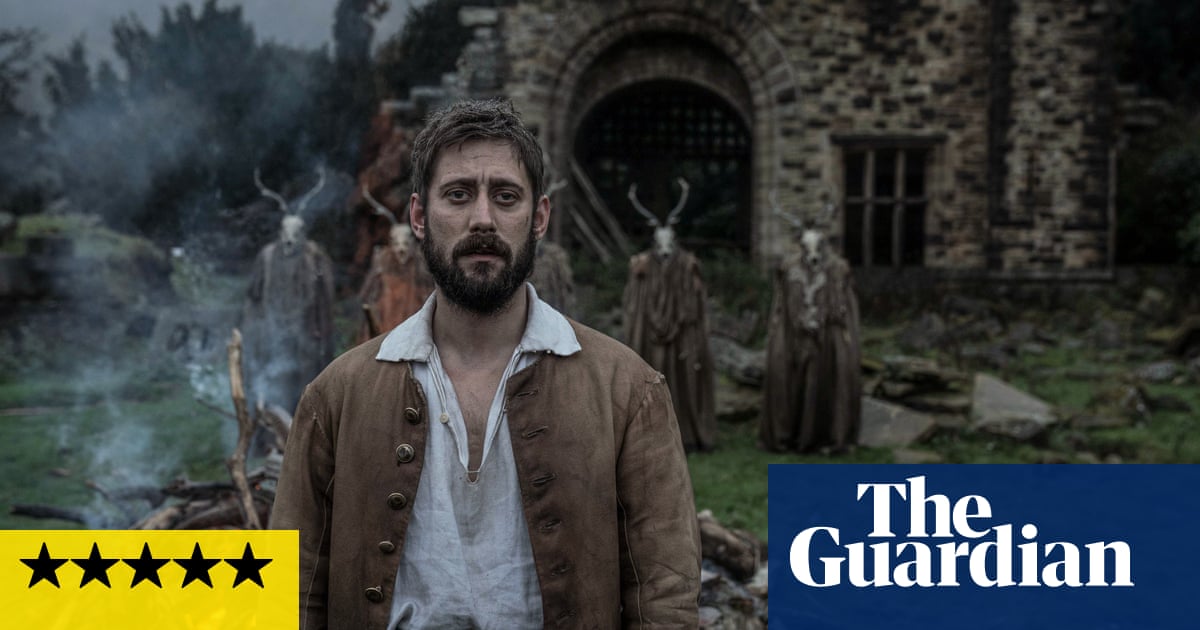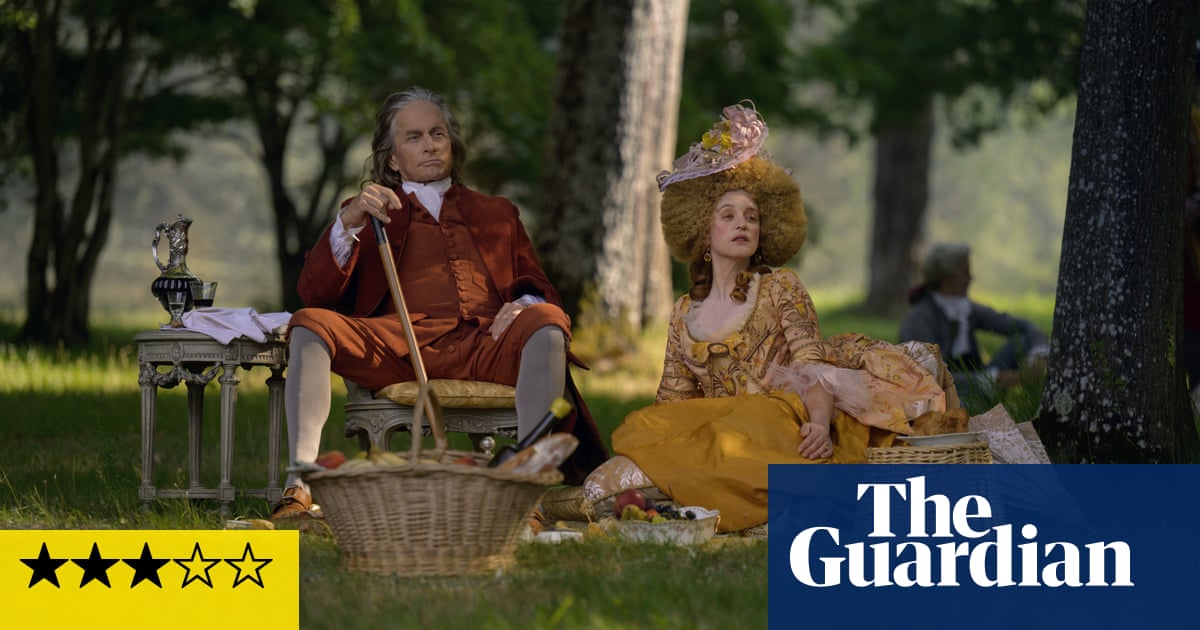
Benjamin Myers’ 2017 novel The Gallows Pole told the true-life tale of the 18th-century gang of coin clippers led by “King” David Hartley, whose illegal work and attendant violence came to dominate Cragg Vale in West Yorkshire. It had formerly been the home of a thriving cottage textiles industry, but the advent of the industrial revolution and the rise of nearby Halifax as the centre for all that trade had left surrounding towns and villages concomitantly impoverished. In Myers’ hands, it is a powerful story of desperation, class warfare and the ability of money to corrupt – or further corrupt – anyone it touches. Though it must be said that it is so unrelentingly grim and humourless that at times you do feel you are moments away from hearing the voice of Jim Broadbent as the pretentious playwright in Victoria Wood’s Staying In crying “The north! My north!”.
Shane Meadows’s take on the tale keeps all the energy, density and fortitude of the book, but adds the missing humour (and women – Myers’ book is, quite legitimately but noticeably, all about the men) to give it light and shade. Though it retains the strange “stag men”, who roam the moors appearing to people on the edge of consciousness or death, it moves the main figures back to a more ordinary humanity, from Myers’ bordering-on-folkloric space.
Meadows’ talent for naturalism, for showcasing experienced and inexperienced actors, for depicting all the fun and sorrow in ordinary lives and relationships is normally deployed in the telling of absolutely contemporary stories. The This is England quartet (2006-15) that made his name was about modern disenfranchisement, and his most recent drama The Virtues had Stephen Graham as a middle-aged man trying to escape years of childhood trauma. The Gallows Pole is his first period drama, and he more or less – seemingly effortlessly – reinvents the genre.
He doesn’t give his characters modern mores – their speech is laced with 18th-century regional terms – but they are not constrained by the artistic conventions we have come to accept as markers of authenticity over the years. The script framework is written by Meadows, but, as with all his previous work, the actors have freely improvised and contributed along the way. The effect is wonderful. Every one of them feels as fresh and completely convincing as Lol, Combo, Harvey or Shaun. Real people, just … in the past.
Meadows is freed somewhat from the heaviness of Myers’ take on the counterfeiters’ extraordinary story by the fact that his is really more of a prequel to it. His lean, three-part drama concentrates on how the coining gang was put together – and secured the involvement of the local people which in turn allowed them to proceed – in relative safety. It shows us how they eventually become responsible for introducing so much fake money into the system that they almost collapse the Georgian cash economy.
David – not yet “king”, but soon – Hartley (Michael Socha, effectively one of Meadows’ repertory company members) returns to his home village after a seven-year unexplained absence, just in time for his father’s funeral and almost in time for his own. He has walked, with a stab wound in his side and trailing a leather sack, all the way from Birmingham, after killing a man. The stag men stalked him across the moors, vouchsafing him a vision of the path his life could take if he manages to survive his injuries. “I don’t feel very well.” “How’s your side?” “Really fucked … yeah, really fucked.”
He pulls through. But then he has to survive his welcome home. Where has he been and what has he been bloody well playing at is the general tenor of it. Especially from Grace (Sophie McShera), the rarely-seen embryonic form of the mighty Yorkshire battleaxe, whom David had been courting before he left. He finds the people he left behind, including his brothers, Isaac (Samuel Edward Cook), Tom (Dave Perkins) and William (Thomas Turgoose, another of his repertory stalwarts), now being ground under the heel of industrialisation. The work is going to the towns, Grace is helping to run the equivalent of a food bank for the increasingly desperate villagers, but the clothier (Ralph Ineson, yet to appear on screen though his shadow looms increasingly large) is still demanding every penny of rent for the spinning wheels now standing hopelessly idle in homes.
David calls his family and friends to a meeting to show them what he took from the man he murdered in Brum: a guinea stamp. Clip a tiny bit of gold from 10 coins, melt the trimmings, create an 11th and banish the threat of starvation, eviction and untimely death from the valley. Who’s in?
The roughcast look, feel, performances, including and especially by first timer Suzie Binns as less-embryonic, more lugubrious battleaxe Mand (other varieties of female character do, I assure you, abound), wit and earthy intelligence combine to make this a drama of rare quality in every sense. It is funny, moving, enraging, shocking by turns and always compelling. Not to be missed.
Gallows Pole aired on BBC Two and is available on BBC iPlayer












